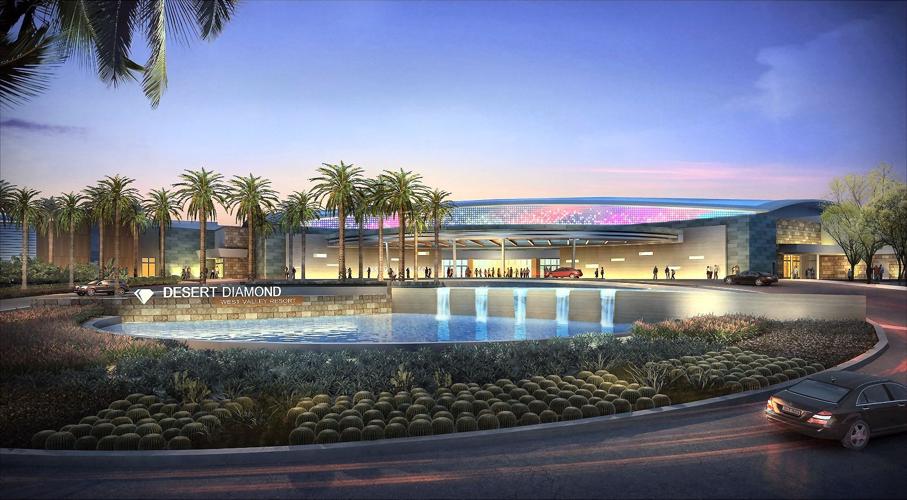PHOENIX — Federal officials have removed the last legal barrier to full-blown casino gambling on the edge of Glendale.
The U.S. Department of Interior this past week approved the changes in the gaming compact between the Tohono O’odham Nation and the state. That new agreement formally means the state will no longer oppose expanded gaming on the site and will, in fact, provide the necessary permits. The main parts of the tribe’s reservation are in Pima County.
A day later the tribe told U.S. District Court Judge David Campbell it was dropping its lawsuit to force the state to allow its casino plans to proceed.
But it could be months before the new slot machines that the deal allows could be in place.
And forget about playing blackjack or other table games at the West Valley Desert Diamond Casino for more than a year.
For the time being, operations will continue in the warehouse that was built for the limited gaming the tribe could conduct without state permission.
That consists of devices that look all the world like slot machines. But they are, in fact, a form of electronically interlinked bingo games.
A tribal spokesman said the first step is replacing those 1,089 machines with true slots, which operate using programs determining payouts. But he said it involves more than flipping a switch.
And table games are another matter.
Put quite simply, since the area where the casino gaming is now taking place was built as a warehouse, there just isn’t the space for them.
Those will need to wait for completion of the new casino along with the resort that will be at the center of it. With construction not set to begin until later this year, that puts completion out into 2019.
The federal approval marks the end of what has been a plan decades in the making — though people outside the tribe did not know that.
It traces its roots to 1986 when Congress agreed to give the tribe $30 million in compensation when a federal dam project flooded about 10,000 acres of land in the San Lucy District of the reservation.
That law also allowed the tribe to purchase replacement land in Pima, Pinal or Maricopa counties. And it said that land could be made part of the reservation if it was not within any city limits.
In 2002, voters approved a measure giving tribes the exclusive rights to casino gaming. That law not only cemented existing casinos, but also gave the O’odham the right to build a new one.
A year later, the tribe bought land on the edge of Glendale. But its ownership was hidden under the name Ranier Enterprises.
It was only in 2009, when the tribe asked the federal government to make the land part of the reservation — a legal precursor to gaming — that the true ownership became known.
That resulted in a series of lawsuits by the state, the city of Glendale and the Gila River Indian Community aimed at blocking the move. They claimed that the 2002 ballot measure limited gaming to existing reservations.
But federal courts said that’s not the way the language reads.
In the interim, the tribe moved some Class II gaming devices — those interlinked bingo machines, which the state has no authority to regulate — into the warehouse and opened its doors.
The last litigation was settled earlier this year when Gov. Doug Ducey agreed to provide the permits for full-scale Class III gaming at the site. In exchange, the tribe agreed not to try to open any more casinos in Maricopa County for the foreseeable future, meaning at least 2041.
And that deal paved the way for the tribe to finally get the liquor license for the facility it has been seeking since it opened in late 2015.
The expanded plans call for a $400 million complex. That includes not only a casino with a larger gaming floor than exist now, but also five restaurants.
Plans are to have the existing casino remain open in the interim.
The second step is going to be the resort and some conference center space.





